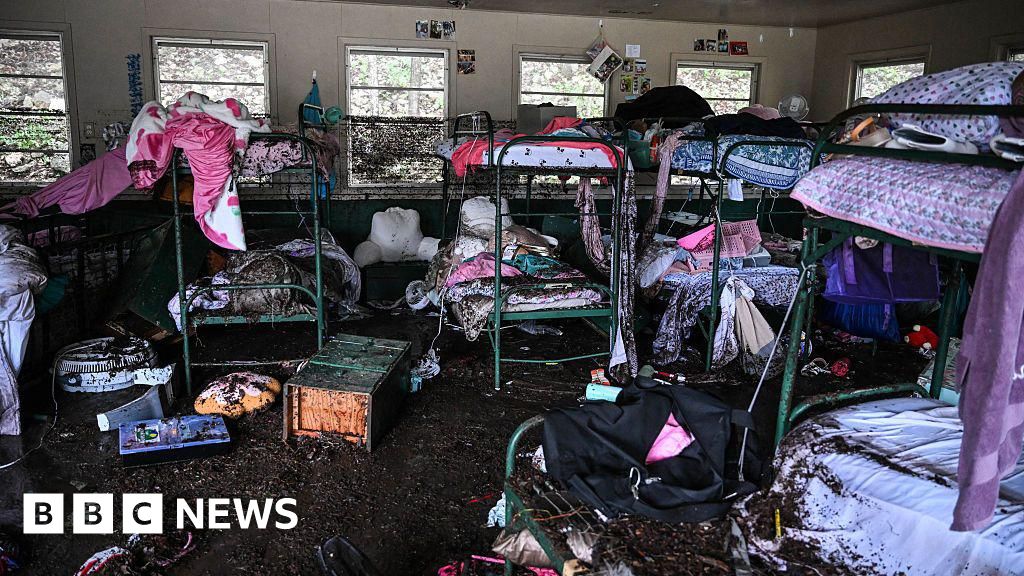Corals everywhere on the planet live in harmony with microscopic organisms. Many corals get their vivid colors from microscopic algae which lives inside the corals’ tissue and provides the coral with food. Even in the water surrounding coral reefs, there is a microscopic soup of bacteria, archaea, and other types of microbes that respond to changes in the habitat and can indicate whether or not the coral reef is healthy.
In a new paper published in Cell Reports Sustainability, authors Amy Apprill, associate scientist in Marine Chemistry & Geochemistry at Woods Hole Oceanographic Institution (WHOI), and Jennifer L. Salerno, marine biologist and associate professor in the Department of Environmental Science and Policy at George Mason University, detail just how valuable these surrounding microbial communities are for coral reef monitoring and conservation.
They describe how sampling and analyzing reef water for certain microbes can be useful, not just to microbiologists and reef scientists, but to others directly tasked with managing and conserving reef ecosystems, like marine park managers, conservation non-profits, restoration teams, and policy makers.
“Factoring in microbes is very helpful to understand more about overall reef health,” Apprill said. “My team has produced over a dozen detailed datasets that demonstrate these connections. Our goal with this new paper is to make this knowledge accessible to the programs and people interested in using microbes to diagnose reef health and ocean conditions.”
Compared to taking visual observations of reef habitats, sampling and analyzing water microbes provides a more immediate picture of health and more details about the organisms living alongside the reefs. The paper provides a detailed overview of best approaches, estimated costs, and recommendations for organizations and conservationists to easily apply these techniques.
Bacteria and archaea are the most numerous of the microbes in reef environments. They respond to the surrounding chemical environment, like nutrients and trace elements, as well as physical properties of the water like oxygen saturation, temperature, pH, and light.
The presence of specific microbes can indicate certain conditions in the water. For example, the paper states, the presence of E. coli commonly indicates human or animal waste in the nearby environments, often a bad sign for reef health. On the other hand, an abundance of a common photosynthetic microorganism can be a positive sign.

“The utility of using microbes as meaningful indicators is increasing as our understanding of their roles in maintaining or destabilizing health and ecosystem function is growing,” Salerno said. “I think we have the science and accessible technology to take a more nuanced approach to coral reef conservation, management, and policy decisions by deploying diagnostic tools like this.”
Non-invasive water sampling can be done using a variety of approaches, ranging in cost and technical complexity, making it accessible to different stakeholders. Similarly, examining the microorganisms can be done with different methods, also ranging in complexity and cost, from using a compound fluorescence microscope, to extracting DNA and RNA for more detailed data.
In the paper, Salerno and Apprill also call for standardizing methods, and for coordination between scientists and organizations to ensure the success of a large-scale monitoring program. They also provide recommendations on ‘where to’ and ‘when to’ sample reef sites based on previous studies and experience.
“Because of the decline of coral reefs and the increased attention towards interventions such as restoration or rebuilding of a reef, it is important to bring all the relevant tools to the table to help restore, manage, and conserve reef ecosystems,” Apprill said.
Knowledge about reef microbial communities, including the abundance of microbes in the water and the microbial community composition and diversity, can provide a diagnostic snapshot of a specific system and, with continued sampling, demonstrate how it changes over time.
Ultimately, Apprill and Salerno want this knowledge widely available, accessible, and recorded in open-access data banks. That way, as databases on reef water microorganisms grow, “machine learning-type approaches can be implemented” to provide additional information on microbe-coral reef dynamics and “learned patterns from global data can be used to develop a microbial reef water health index,” the paper states.
“As coral reef scientists, we are very good at monitoring change and sometimes determining the root causes of the changes we are seeing on the reef. We aren’t as well versed in mitigation and coordinated responses to emerging threats, but I would say as a community, we are improving,” Salerno said.
“If we can become better at predicting emerging threats through the use of diagnostic tools, perhaps we can also become better at preventing them from impacting reefs in the first place. With coral reefs being impacted by climate change globally, it is more important than ever to understand and boost resilience locally.”

The last two years have brought some of the worst coral bleaching events ever recorded—when coral expel their microscopic algae due to heat stress and other environmental factors. As the ocean continues to absorb excess heat from worsening climate change, the future of many coral reef ecosystems are in jeopardy. Having as many solutions and tools to protect these essential marine systems—that host more biodiversity than anywhere else in the ocean—is crucial, Apprill explained.
“We need to provide as much practical and accessible information as we can to the people making decisions,” Apprill said. “I think these microbes can enhance our knowledge of the ecosystem and elevate our framework for decision making. I want people to get excited about this idea, and for current coral reef monitoring programs and management agencies to understand how this can make a difference to their programs.”
More information:
Amy Apprill et al, Reef water microorganisms as diagnostic indicators for coral reef ecosystem management and sustainability, Cell Reports Sustainability (2025). DOI: 10.1016/j.crsus.2025.100403
Citation:
Microbial monitoring in reef waters offers accessible tool for ecosystem management (2025, May 16)
retrieved 16 May 2025
from
This document is subject to copyright. Apart from any fair dealing for the purpose of private study or research, no
part may be reproduced without the written permission. The content is provided for information purposes only.



















